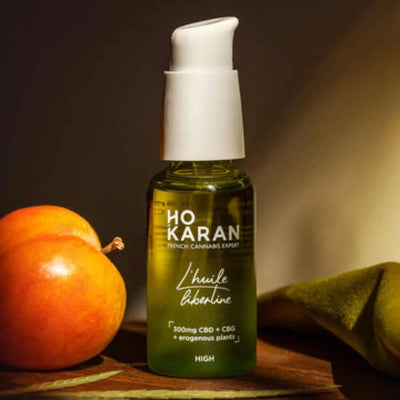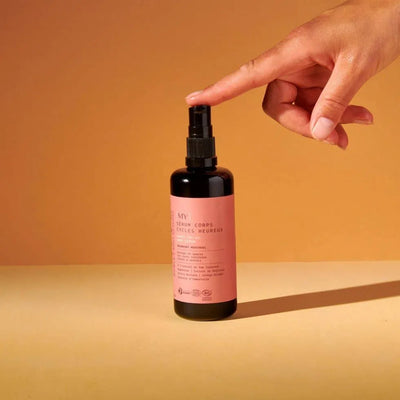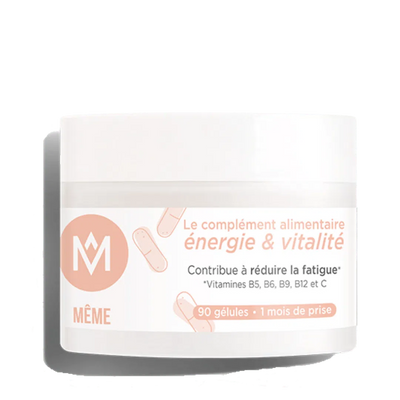
Fatigue and periods: how are they linked and how to respond?
Verified on 7/28/2025
Welcome to Gapianne! 👋
Here, we guide women towards appropriate solutions for all issues related to their gynecological health and intimate well-being, thanks to a personalized support program.
Among the many symptoms that affect women just before and during their periods, we find, very regularly, fatigue. The latter has several explanations, such as difficulty sleeping during your period, hormonal fluctuations or even blood loss and anemia. While it is therefore quite normal to be tired just before and during your period , it can be particularly disabling. Let's discover together, in this article, 8 tips to avoid being too tired during your period .
8 tips to avoid fatigue during your period
While poor lifestyle habits can exacerbate your period fatigue, good lifestyle habits can help alleviate it. In addition to these, we've got other tips for limiting period-related fatigue!
1. Before you start: consult a doctor
We already talked about this a little earlier in this article: fatigue is not only linked to periods and we should not neglect that it can be linked to other pathologies, both physical and psychological. It is therefore important to consult your doctor if you suddenly feel a change in your state of health (fatigue, weight loss, pale skin, etc.).
2. Get enough rest
Our first tip for feeling more rested is to get enough rest. This may seem obvious, but it's possible that over the years and with changes in habits, your need for sleep has simply increased. Whereas seven hours were enough before, you may now need eight or nine hours, every day or during your period! Try going to bed earlier and see if it helps you feel better!
To help you fall asleep more easily, we recommend establishing a bedtime routine. Screens help stimulate our brains, so slowing down our exposure before bedtime is beneficial. In the thirty minutes before bed, try doing your nighttime routine, enjoying a herbal tea, and reading a good book to help you achieve restful sleep.
3. Take time for yourself
It's not always easy to take time for yourself in our hectic lives. And yet, these moments of pause, dedicated to rest but also to activities that recharge you, are essential for your proper functioning and mental health.
Taking time for yourself doesn't necessarily mean booking a massage or going to yoga: it could be watching a movie you've been wanting to see, reading a book sitting on a terrace before going home, having a drink with friends... Taking time for yourself means taking time to do something that excites you – whatever it may be!
🌸 This is especially important since many of you experience stress and depressive episodes, some severe, during your period. Read our article on depression before and during your period to learn more about this.
4. Maintain a balanced diet
We mentioned it a little earlier: good lifestyle habits are your allies for feeling better rested. This includes a balanced and varied diet, with the least amount of processed products, and low in fat and salt.
Because periods are also when cravings can strike (and cravings rarely go to apples!), do your best ❤️
5. Consider taking supplements
Do you sometimes struggle to maintain a balanced diet? Dietary supplements can be helpful. While they're not a substitute for your diet, they can provide you with valuable and essential nutrients and help you overcome fatigue.
6. Hydrate (and limit alcohol)
Water is also essential for hydrating your body. Around your period, as well as throughout your menstrual cycle, it's essential to drink regularly and in sufficient quantities (around 1.5 L). This helps your body function properly.
🚩You probably already know this, but we'll say it again: alcohol isn't a great way to hydrate... on the contrary, it dehydrates! That's why, to avoid a hangover, we tend to recommend drinking as many glasses of alcohol as glasses of water! What's more, alcohol tends to increase the pain associated with periods.
7. Exercise
While it's not always easy to exercise during your period (ouch, the pain...), it's very beneficial. It can help ease your period pain, but it can also help you tire yourself out physically: physical fatigue allows you to sleep more quickly and more deeply. Practice the sport that you enjoy and that makes you feel good: walking has many benefits, but you can definitely opt for other sports, depending on your tastes and habits!
🚩If you feel really tired, avoid sports that are too rough, team-based, or jerky. You're more likely to get injured if your focus and body aren't at their best!
8. Limit caffeine
This may seem counterintuitive, but it's worth limiting caffeine during your period if fatigue is your enemy. It gives you a temporary boost (you feel a spike in energy), but after that boost, your energy levels will drop even lower and you'll feel more tired... what's more, we often tend to use caffeine as a "cover-up": we deny our body the right to be tired and we push it further and further... which exhausts it even more. In other words, limit caffeine to be more aware of your limits and listen to yourself better.
💡Did you know? Theine, caffeine, and mateine are three names for the same molecule! (The name simply changes depending on the beverage that contains the molecule.) This is why drinking a lot of tea can also be harmful. Choose herbal infusions without caffeine or theine.
What products can help me feel less tired?
Beyond the tips suggested above, here are several products that may interest you and boost your ability to feel less tired.
A herbal tea to hydrate you and help you fall asleep
Herbal tea is a great way to help combat the fatigue you feel during your period. It combines hydration, the benefits of plants, and a sleep ritual.
CBD to ease your pain and help you sleep
Cannabidiol (CBD) is a molecule derived from hemp flowers , specifically the Cannabis Sativa subspecies of hemp. It is known to be beneficial for its relaxing, anti-anxiety, and anti-inflammatory properties. It is therefore beneficial for alleviating pain, reducing anxiety, and facilitating sleep . This is why taking CBD can help relieve fatigue.
We particularly recommend:
- A sublingual CBD oil: this involves placing the CBD oil under the tongue, a particularly permeable mucous membrane in the body that allows for rapid assimilation of CBD. This allows you to quickly benefit from the effects of CBD and, above all, to see how much CBD you need to feel its effects. 🌈 On our e-shop, we have a 10% CBD oil from the Équilibre CBD brand that we love.
- CBD massage oil: massaging painful areas (for example, the stomach or legs) allows you to benefit from the effects of CBD.
- An intimate CBD oil: CBD can help alleviate the pain associated with painful periods by massaging the intimate areas and the vaginal mucosa with an intimate CBD oil. 🌈On our e-shop, we recommend a CBD lubricating libertine oil . We particularly like it!
- CBD herbal teas: Herbal teas are a great way to ingest CBD in a different way, especially when incorporating it into your daily routine to help you fall asleep. In addition to CBD, you can benefit from other plants that work synergistically. 🌈On our e-shop, we have several CBD herbal teas, such as the Rituel de Morphée infusion by Mijane.
A massage oil to relieve your pain
Massage oil is a great option. It has two benefits: the first helps ease the pain associated with painful periods, making it easier to fall asleep; the second helps you relax. Taking the time to give yourself a massage or having one done before bed can help you establish a soothing wellness ritual.
🌈On our e-shop, we love Miyé's Happy Cycles body care serum . During your PMS and during your cycle, use it to massage your painful areas: stomach, legs, chest. It is 99% natural, made in France, organic and vegan.
Food supplements to limit your fatigue
A varied and balanced diet helps maintain a balance of nutrients in your body to promote proper functioning. Dietary supplements can help your body supplement when food isn't enough or when it can't metabolize all the food you eat. To limit fatigue, especially during seasonal changes and the onset of your period, supplementing with dietary supplements is a good idea.
🌈On our e-shop, we recommend the anti-fatigue food supplements from the Même brand if your fatigue is generalized and doesn't only occur during your period. They are specifically designed to combat fatigue around three key ingredients: ginseng to strengthen the human body, hibiscus to provide vitality, and vitamin C to reduce fatigue!
🌈If your fatigue is related to your period, we recommend Gyneika's hormonal balance supplements . They are designed to alleviate symptoms related to hormonal imbalance, including chronic fatigue during this period. They are formulated around three key ingredients: ashwagandha to promote hormonal balance, magnesium bisglycinate to reduce fatigue and stress, and chasteberry to promote hormonal balance and contribute to comfort during your cycle.
Is it normal to be tired during your period and what are the causes?
Yes, as we mentioned in the introduction, it can be normal to feel tired before and during your period. Depending on your menstrual cycle, fatigue can even begin up to two weeks before your period, throughout the luteal phase. Find out below the reasons why you may be tired during your period.
🚩 A quick disclaimer that may seem obvious. Fatigue is not a symptom specific to periods and can be linked to other conditions. If you've been feeling extremely tired lately, we recommend consulting a healthcare professional. They can determine if your period is the cause.
Hormonal fluctuation
Before your period, the first thing that can explain the fatigue you feel is hormonal fluctuations. Sex hormones (estrogen and progesterone in particular) are the conductors of the menstrual cycle: their levels regulate the cycle and the functioning of your body. As your period approaches, progesterone and estrogen levels are at their lowest (it's even their low levels that trigger your period!). This variation can cause fatigue! If you want to learn more, check out our article on the luteal phase and mood.
Pain and cramps
As your period approaches and then continues, the pain caused by various period symptoms (migraines, menstrual cramps, chest pain, period-related leg pain, period-related back pain , and so on) can cause fatigue. Fighting the pain and forcing yourself to “function” on a daily basis can be exhausting. Try to see if your company offers menstrual leave ( some French organizations are starting to do so !) and/or negotiate teleworking during your period if your job allows it.
Sleep disturbances / lack of sleep
Periods are often accompanied by sleep disturbances. This is mainly because they cause stress and pain that prevent you from falling asleep and getting restful sleep. It's easy to understand how this lack of sleep can impact your fatigue!
Blood loss
The penultimate reason that can explain your fatigue during your period and just after: blood loss. If your periods are heavy , in flow and duration (more than 5 days), it is possible that the blood loss caused by your period is tiring you out. Some women find themselves in a situation of anemia (iron deficiency) (1) and may feel unwell because of their heavy periods!
Lifestyle amplification
Finally, your lifestyle and habits can impact your fatigue and amplify period-related fatigue. This includes a lack of exercise, poor diet, poor hydration, or too much stress.
Sources:
Also read: I have my first period, how do I manage it? >
Welcome to Gapianne! 👋
Here, we guide women towards appropriate solutions for all issues related to their gynecological health and intimate well-being, thanks to a personalized support program.



